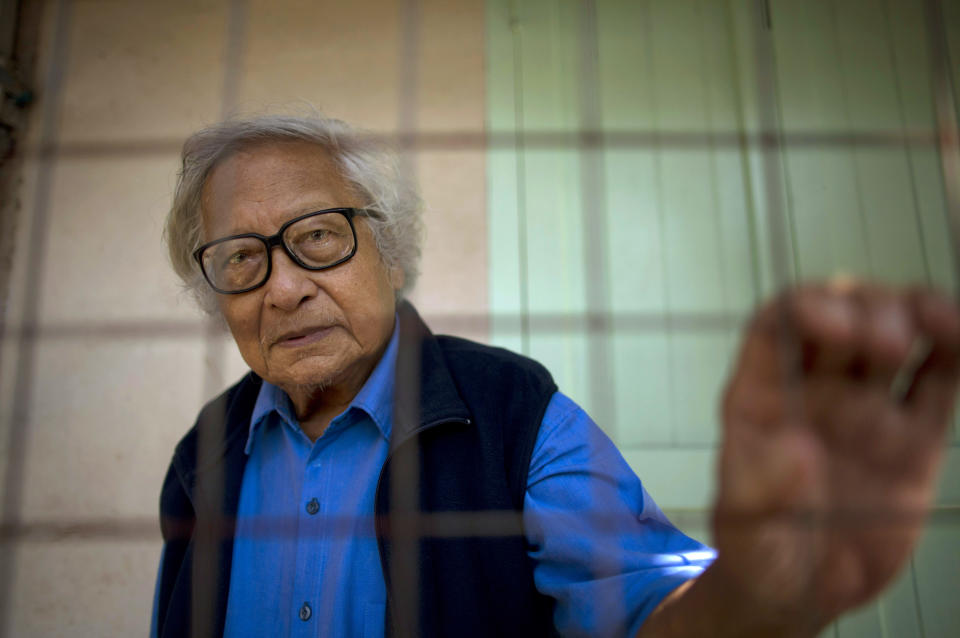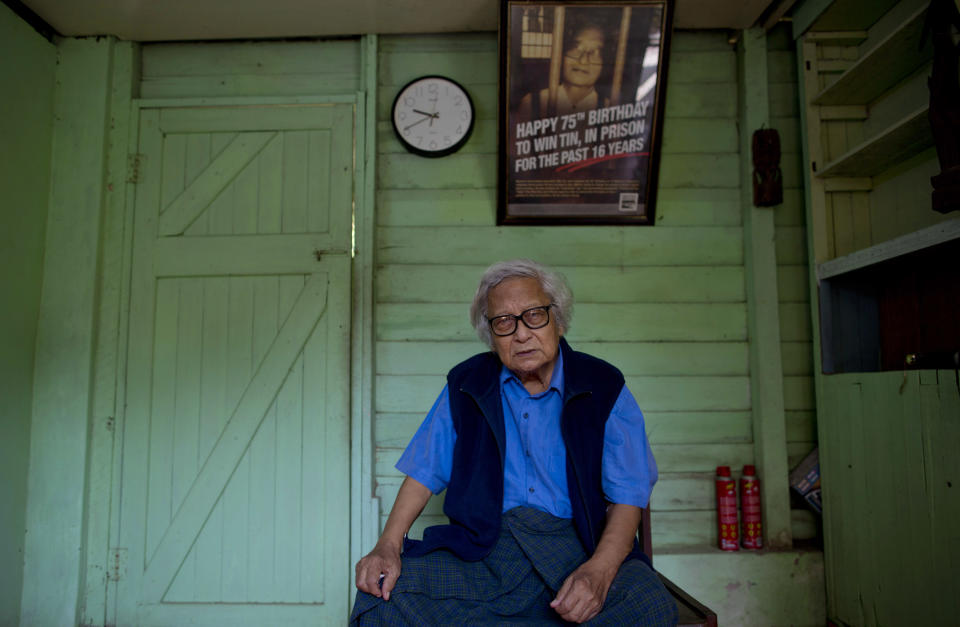Anti-junta Myanmar journalist Win Tin dies at 85
YANGON, Myanmar (AP) — Win Tin, a prominent journalist who became Myanmar's longest-serving political prisoner after challenging military rule by co-founding the National League for Democracy, died Monday, He was 85.
He had been hospitalized with respiratory problems since March 12 and died at Yangon General Hospital.
A former newspaper editor, Win Tin was a close aide to opposition leader Aung San Suu Kyi, another founder in 1988 of the pro-democracy party. In 1989, she was put under house arrest and Win Tin was sent to prison for his political activities. His sentence was extended twice for various reasons, the second time for writing a letter to the United Nations.
Colleagues and admirers paid tribute to the feisty writer and activist, with Suu Kyi sending a handwritten note for his funeral service which was also posted on her Facebook page in her capacity as the party's chairwoman.
"I pay my respects to Saya U Win Tin for raising the dignity of the NLD, Burmese politics, the country and mankind," she wrote, using Myanmar's former name of Burma. "Saya" means "teacher," and is a respectful way of referring to one's mentor.
NLD spokesman Nyan Win described Win Tin as "a great pillar of strength.'
Ko Ko Gyi, a member of a younger generation of activists who spearheaded the country's unsuccessful 1988 pro-democracy uprising, said he and colleagues were inspired by Win Tin's writings.
"He was a great strength to all of us and his continuous support to the democratic movement will never be forgotten," said Ko Ko Gyi, who also was a long-serving political prisoner. "His strength in challenging the military dictatorship was exemplary and his courage in facing illness was admirable."
While incarcerated, Win Tin received several international press freedom awards, and suffered from ill health, including heart problems, high blood pressure and inflammation of the spine. In his book titled "What's that? A human hell," published in 2010, he gave a vivid description of prison life — how he endured torture, was denied medical care, and fed only rice and boiled vegetables.
While in prison, Win Tin wrote poems on the walls of his cell with ink made of brick powder and water, according to supporters who visited him. After he was released, he kept wearing his blue prison shirt as a sign of protest against military rule.
Freed in a general amnesty of prisoners in 2008, he continued working with the NLD through Myanmar's transition from military rule to an elected — though army-dominated — government in 2011. He continued to call on the military to relinquish power, saying democracy would never come to Myanmar as long as the military continued to dominate the political landscape. He also started a foundation to give assistance to current and former political prisoners.
It was widely believed that the military feared Win Tin because of his strong intellect, believing he was linked to the country's former communist party and was advising Suu Kyi on political strategy and tactics.
"Immediately after his arrest, U Win Tin was kept without food and sleep for three days," Suu Kyi wrote about his imprisonment, saying they were trying "to force him to admit that he was my adviser, in other words, my puppet master.
"A man of courage and integrity, Win Tin would not be intimidated into making false confessions."
But the outspoken Win Tin was sometimes critical of Nobel Peace Prize laureate Suu Kyi's tactics in dealing with the military, chiding her for her conciliatory relationship with its leaders. Despite their differences of opinion, he said he respected her commitment to democracy.
"As newspaper editor, author, poet, and for nearly two decades, political prisoner, U Win Tin was a man of rare integrity and courage, a man who dedicated his life to democratic principles, particularly the principle of press freedom, even under enormous hardship," U.S. Ambassador Derek Mitchell said in a statement.
"His example will continue to serve as an inspiration to all those everywhere who are dedicated to seeking and speaking the truth in the face of injustice," Mitchell said.





